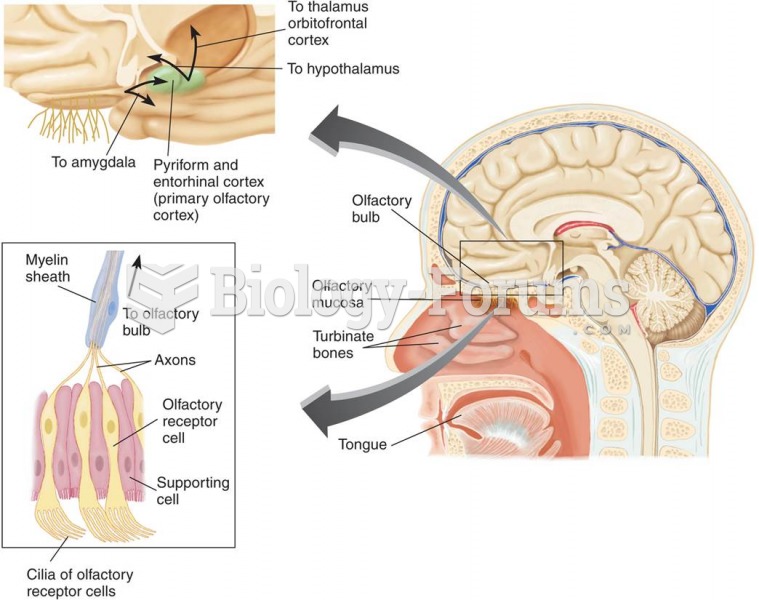|
|
|
Though newer “smart” infusion pumps are increasingly becoming more sophisticated, they cannot prevent all programming and administration errors. Health care professionals that use smart infusion pumps must still practice the rights of medication administration and have other professionals double-check all high-risk infusions.
Methicillin-resistant Staphylococcus aureus or MRSA was discovered in 1961 in the United Kingdom. It if often referred to as a superbug. MRSA infections cause more deaths in the United States every year than AIDS.
It is widely believed that giving a daily oral dose of aspirin to heart attack patients improves their chances of survival because the aspirin blocks the formation of new blood clots.
Multiple experimental evidences have confirmed that at the molecular level, cancer is caused by lesions in cellular DNA.
Amoebae are the simplest type of protozoans, and are characterized by a feeding and dividing trophozoite stage that moves by temporary extensions called pseudopodia or false feet.
 Intradermal drug administration: (a) cross section of skin showing depth of needle insertion Source:
Intradermal drug administration: (a) cross section of skin showing depth of needle insertion Source:
 Effect of pH on drug absorption: (a) A weak acid such as aspirin (ASA) is in a nonionized form in an ...
Effect of pH on drug absorption: (a) A weak acid such as aspirin (ASA) is in a nonionized form in an ...






